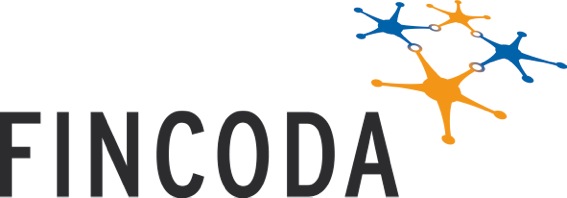On 1st September 2016, a large group of students, teachers and project workers from Turku University of Applied Sciences, together with Elomatic experts, joined together to solve certain challenges in product development. Elomatic had the waste flow monitoring system called ESCflow in pilot phase and before entering the market, there were still some areas to be developed further. This coincides with one of the aims of the FINCODA project to test new forms of cooperation enhancing innovation competencies between University and the commercial world.
After the kick-off meeting, twelve student groups, alongside the guidance of many teachers and Elomatic experts, started to work on six assignments. At the university, the work was integrated to “the Design and Development 15 (ECTS)” study module which was created to be completed during the Autumn semester and consisted of three courses giving support to the work. The work was part of the FINCODA project which was to create one example of Innovators, Education and Recruitment working in partnership.
The work was designed to link all courses together, in such a way that the content of different courses supported the student groups' work with the assignment. At the same time, the real-life assignments link the students' theoretical course work to the real challenges in design and development.
The student groups consisted mainly of 2nd year “Energy and Environmental Engineering” students who were facing the subject of design and development for the first time in their university studies. However, each group was led by more experienced students from “Mechanical and Production Engineering” and “Industrial Management Engineering” courses who had the opportunity of experiencing the role of Project Manager. In addition, the student groups had the opportunity to have three design students working with them in a consultancy capacity. The “Research Hatchery” concept with multidisciplinary groups of students, with the guidance of more experienced students and their teachers, together with commercial partners, were ready to start working.
Every Thursday and Friday were dedicated to the module. Furthermore, every alternate Thursday’s student groups had to pitch their work to Elomatic experts who were able give feedback and support to them. The three courses behind the module guaranteed that the skills and competences, which were needed for working with assessments, started also to emerge and develop. The role of the teachers was more on coaching than in traditional teaching.
One product of FINCODA, the FINCODA Barometer Innovation Assessment Tool was also involved in the work. The students carried out the pre-test before the work with Elomatic really started and then again in the end of the semester. The Barometer was also used for formative assessing purposes in the middle phase of the work. Student groups were asked to think in depth about the indicators and dimensions of the barometer and feedback the results and if they would benefit from the results in their University studies and working life. From the perspective of the FINCODA project employees, it was encouraging as the formative assessment showed that the barometer was understood in the way it was supposed to be understood. In addition, in general, the post assessment showed some innovation competences developments within the student groups.
The module finished at the last seminar where all the products created by the students were presented to Elomatic experts. The results were greatly received and some of them were even better than predicted and will help Elomatic go further with the idea and development of the ESCflow-system.
On completion of the course, the feedback we received from different players involved, was encouraging and most importantly, the good results in real assignments, the learning outcomes of the courses inside the module, are all positive.








